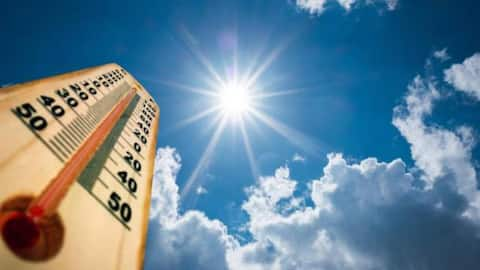Heatwaves may speed up aging in people, study finds
What's the story
A recent study has revealed that repeated exposure to heatwaves is speeding up the aging process in humans. The effect is similar to the health damage caused by smoking, drinking alcohol, eating unhealthy food, and lack of exercise. The research highlights how extreme temperatures due to climate change could cause widespread and long-term harm to billions of people's health.
Research findings
Manual workers most affected
The study, which followed 25,000 people in Taiwan over 15 years, found a correlation between heatwave exposure and biological age, a measure of overall health. For instance, those exposed to four more heatwave days in two years had their biological age increase by about nine days. Manual workers were particularly affected with their biological age increasing by as much as 33 days.
Global concern
Increased risk of death
The researchers warned that the global impact of heatwaves could be huge as everyone is affected during these events. Higher biological age is a strong predictor of increased risk of death. Dr. Cui Guo, the study's lead author from the University of Hong Kong, said if heatwave exposure accumulates for several decades, the health impact would be much greater than reported in this study.
Paradigm shift
Far-reaching effects of heat exposure
Prof. Paul Beggs from Macquarie University in Sydney, Australia, who wasn't part of the research team, highlighted a paradigm shift in understanding heat's impact on health. He said that early life heat exposure negatively impacts brain white matter development in children. Coupled with this new finding about adults, it shows the far-reaching effects of heat exposure on human health at any age.
Research approach
Study published in 'Nature Climate Change'
The study, published in the journal Nature Climate Change, used a range of medical tests to determine each person's biological age. It found that the total number of heatwave days experienced had the biggest impact on accelerated aging. While the harmful effect of heatwaves lessened over time, it remained significant—indicating people were taking steps to cope with extreme temperatures like spending more time in shade or using air conditioning where available.
